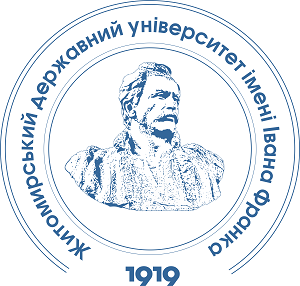FEATURES OF THE RUSSIAN OCCUPATION EXPERIENCE BY THE CHORNOBYL ZONE RESIDENTS
DOI:
https://doi.org/10.32782/psy-2023-2-5Keywords:
russian occupation, Chornobyl exclusion zone, residents of the exclusion zone, experience, emotional states, coping behavior, copingAbstract
The article is devoted to the study of the psychological consequences of the russian occupation for the residents of the Chornobyl exclusion zone, which Russian troops have occupied since the beginning of Russia's full-scale invasion of Ukraine in February 2022. The purpose of the research is to study the emotional, semantic, and behavioral components of the experience of the russian occupation by the residents of the Chernobyl zone. The theoretical and methodological foundations of the study were the psychology of experience (V. Frankl, F. Vasyliuk, etc.), researches of psychological consequences of war (K. Miller, A. Rasmussen, T. Tytarenko, etc.) and the consequences of the russian occupation in Ukraine (A. Pobidash, H.Shchygelska, etc.). The empirical study combines nomothetic and ideographic approaches using the following methods: informal conversation; associative experiment on the word-stimulus «occupation»; and R. Lazarus' questionnaire of coping behavior. The psychosemantic analysis of the respondents' associations showed that the residents of the exclusion zone associate the occupation mainly with their own emotions (fear and hatred prevail among them), with military attributes, and personalize it through the images of the Russian military. The results of the study of coping behavior revealed that most of the respondents overcome stressful events in their lives through self-control, seeking social support, avoidance, and positive reassessment, i.e. passive and social strategies. A smaller proportion of the respondents overcame difficulties by taking responsibility and planning to solve problems, and they resisted the occupiers during the occupation. Prospects for further research are seen in the development and testing of a psychological support program for residents of the exclusion zone.
References
Афанасьєва Н. Є. Особливості дистантного консультування представників постраждалих спільнот. Актуальні дослідження в сучасній вітчизняній екстремальній та кризовій психології: монографія. Харків, 2017. С. 430–445.
Мєдвєдєва О. В. Психологічні особливості переживання горя під час воєнних дій. Підготовка правоохоронців в системі МВС України в умовах воєнного стану. Харків, 2022. С. 205–207.
Моляко В. О. Психологічні наслідки чорнобильської катастрофи. Актуальні проблеми психології : Збірник наукових праць Інституту психології ім. Г. С. Костюка АПН України. Київ, 2010. Т. 12. Випуск 12. С. 8–21.
Оніщенко Н. В., Тімченко О. В. Особливості використання психологічних захисних механізмів та копінгстратегій цивільним населенням, постраждалим від надзвичайної ситуації воєнного характеру. Психологічний журнал. 2022. № 8. С. 81–92.
Папуча М. В. Проблеми психології переживання : монографія. Ніжин : Видавництво НДУ імені Миколи Гоголя, 2019. 191 с.
Пирог Г. В., Шмиглюк О. Г., Горбачук Ю. О. Особливості психологічних станів учасників антитерористичної операції / операції об’єднаних сил. Теорія і практика сучасної психології. 2019. № 3, Т. 2. С. 130–134.
Пирог Г., Бондаренко Т. Особливості зв’язку життєстійкості з копінг-стратегіями внутрішньо переміщених осіб. Габітус. 2023. Випуск 56.
Побідаш А. Ю. Особливості роботи психолога з цивільним населенням, яке пережило жахіття окупації. Актуальні дослідження в сучасній вітчизняній екстремальній та кризовій психології. Харків, 2017. С. 477–488.
Скрипкін О. Аспекти проявів негативних психологічних реакцій на реалії війни в українському суспільстві. Вісник Національного університету оборони України. 2022. № 69 (5). С. 135–143.
Титаренко Т. М. Особистість перед викликами війни: психологічні наслідки травматизації. Проблеми політичної психології : збірник наукових праць Інституту соціальної та політичної психології НАПН України. Київ, 2017. Випуск 5. С. 3–10.
Лукомська С., Харченко Н. Специфіка психологічних травм російсько-української війни у контексті євроінтеграційних процесів. Виклики сучасної психологічної науки країн ЄС: перспективи інтеграції українського досвіду : Збірник тез методологічного семінару лабораторії методології і теорії психології Інституту психології імені Г. С. Костюка НАПН України. Київ, 2022. С. 46–49.
Чабан О. С, Хаустова О. О. Медико-психологічні наслідки дистресу війни в України. Український медичний часопис. 2022. Вип. 4 (150). С. 1–8.
Щигельська Г. В., Боднар В. О. Загрози надзвичайних ситуацій на атомних електростанціях в умовах нового етапу російсько-української війни. Воєнні конфлікти та техногенні катастрофи: історичні та психологічні наслідки: збірник наукових праць. Тернопіль, 2022. С. 99–101.
Яковенко С. І. Психологія людини за умов радіоекологічного лиха. Київ, 1996. 172 с.
Frydenberg E. Coping competencies. Theory into Practice. № 200443 (1). P. 14–22.
Lazarus R. S. Cognitive and coping processes in emotion. Stress and coping. New York, 1997. P. 144–157.
Miller K. E., Rasmussen A. War exposure, daily stressors, and mental health in conflict and post-conflict settings: bridging the divide between trauma-focused and psychosocial frameworks. Social Science & Medicine. 2010. № 70 (1). P. 7–16.
Rizzi D., Ciuffo G., Landoni M., Mangiagalli M., Ionio C. Psychological and environmental factors influencing resilience among Ukrainian refugees and internally displaced persons: a systematic review of coping strategies and risk and protective factors. Front Psychol. 2023.
Zeidner M. Handbook of Coping: Theory, Research, Applications. New York, 1995. 728 p.






